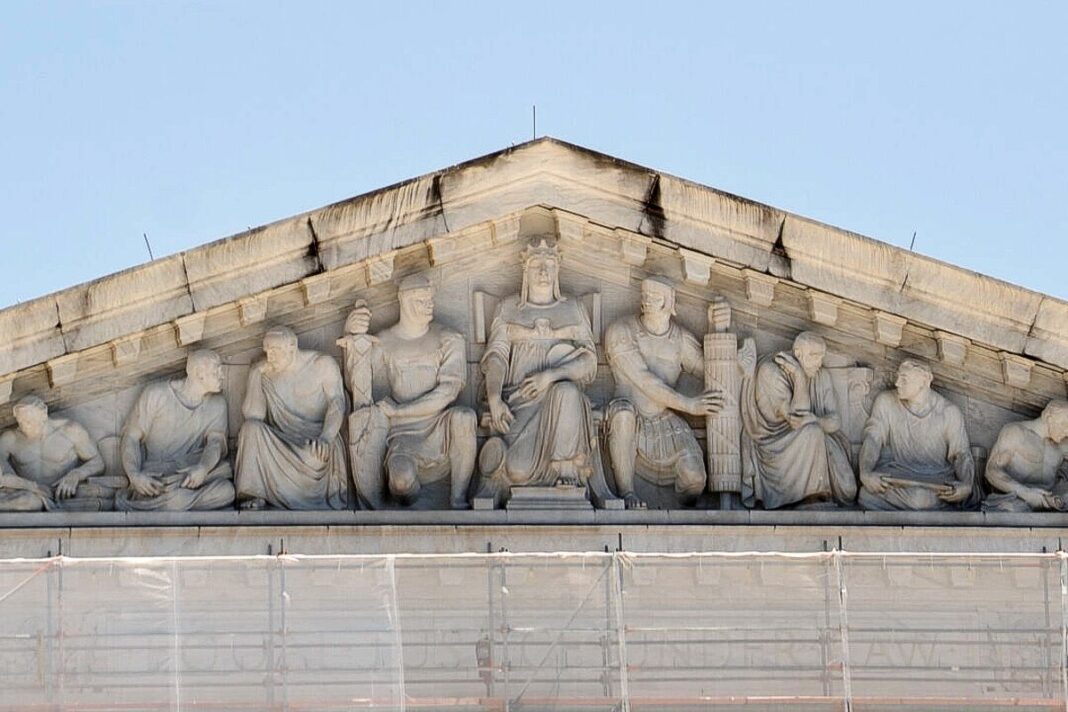A lower court judge blocked the administration’s ability to remove illegal immigrants to South Sudan and other third countries.
The Trump administration is asking the Supreme Court to block a lower court order restricting the Department of Homeland Security’s (DHS) ability to deport illegal immigrants to nations other than their home countries.
“On behalf of a nationwide class of aliens with final orders of removal, the district court issued an extraordinary preliminary injunction that restrains DHS from exercising its undisputed statutory authority to remove an alien to a country not specifically identified in his removal order (i.e., a ’third country’), unless DHS first satisfies an onerous set of procedures invented by the district court to assess any potential claim under the Convention Against Torture,” the Justice Department said in a filing on May 27.
It added that, “Those judicially created procedures are currently wreaking havoc on the third country removal process,” noting that aliens lack the prior ties in these countries that would expose them to likely persecution or torture by country officials.
“The administration said it had been removing individuals to South Sudan, but was blocked by U.S. District Judge Brian Murphy in Massachusetts.
According to the department’s filing, the administration “was in the process of removing a group of criminal aliens who had been in the country for years or decades after receiving final orders of removal, despite having committed horrific crimes.”
That included, the filing says, people convicted of murder, sexually abusing a child, and sexually abusing a mentally handicapped woman.
“All these aliens have already received extensive legal process. All were tried and convicted in a criminal court, with all the process and protections afforded to criminal defendants. All were adjudicated removable,” it added.
Murphy has issued multiple orders over the past few months blocking potential deportations. In April, he said that individuals should be given a chance to raise any concerns if they had reason to believed that their deportation to a new country would “likely result in their persecution, torture, and/or death.”
“This small modicum of process is mandated by the Constitution of the United States,” he added.
By Sam Dorman and Melanie Sun








